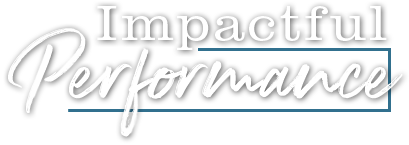There are thousands of articles on how important EQ/EI (Emotional Intelligence) is for leaders today. Since the pandemic, EQ and resiliency have become even bigger buzzwords, as leaders are learning to gain greater awareness of their team’s needs, as well as their own.
Today’s leaders need to be able to calmly and adeptly navigate change and uncertainty for themselves and their teams. With the complexity and intensity of today’s work environments leaders must manage their emotions and their teams.
The old days of command and control leadership are not viable and even acceptable, in today’s working environment. Leaders have to be much more in tune with the emotions of their employees and their own emotional reactions to the challenges of leadership.
EQ is not just about how to manage themselves and others, it’s about a leader’s ability to sustain emotionally healthy thoughts and behaviors through whatever challenges and stresses come their way throughout their career.
Too many people are experiencing burnout, as they never developed a healthy and sustainable approach to their work and career. In today’s hectic business climate It’s become an absolute necessity to have higher EQs so you can effectively lead but also take care of your health.
Even those leaders that used to look at EQ as too touchy-feely and not as important as technical expertise, are singing a different tune.
Many organizations have learned the tangible value of improving their leaders EQ. A majority of companies now include EQ training and coaching into their leadership development programs and look for strong EQ when hiring leaders.
A high EQ benefits the leader and the organization in multiple ways.
Benefits of High EQ to Leaders
- More effective leadership
- More resilient
- Improved communication skills and connecting better with others
- Dealing better with change, uncertainty, ambiguity and disruption
- Improved tolerance, patience and empathy
- Better socialization and improved relationships
- Healthier approach to work and life
- Reduced anxiety and stress
- Better able to handle conflicts
- Better able to overcome challenges
- Better able to understand your employees and customers needs
Steps to Improve Your EQ
First and foremost you must be open to the idea that you can improve your EQ and that you want to…because there are substantial benefits for doing so.
Workers that believe that EQ is the soft, fluff stuff and not worth their time, tend to be the same people that never seem to raise their leadership skills and advance their career. They may be brilliant but not able to play well with others.
You need to intentionally pay attention to your emotions and behaviors as well as each team member, associate and superior. Deliberately observing yourself and others in a more concerted and focused way.
When you work in a constant reactive-firefighting way, you miss all the signs and never grow yourself and your team. You have to be strategic and methodical about your work and how you develop your team.
Flying by the seat of your pants in a chaotic fashion is not sustainable for the long term and you will never increase your EQ.
Learn, observe, and take the time to assess how you are seen by others and how you see others. Knowing and understanding what triggers you and others is very important as well as knowing and understanding where you react instead of just calmly responding
It’s also about creating opportunities for you to quiet your mind and think strategically about your overall approach to your work and life. You need to slow down so you can speed up your leadership growth.
Here are some steps you can take to increase your EQ:
Meditate:
- When you quiet your mind and you are calmer, you can better interact with people, have better clarity, greater patience and you just handle the day’s challenges and frustrations better
Observe and Analyze:
- Your reactions-as opposed to your responses
- Your emotions
- Your behavior
- Other’s reactions to you-verbal and nonverbal cues
Seek First to Understand then to be Understood:
- Focus more on asking questions, as opposed to having all the answers. Hear what people are actually saying, more than what you want them to hear from you. It’s a real mind shift to become a listener and not just a talker
Learn to know and understand your audience:
- Empathy. What they are thinking, feeling and what they are dealing with. What is their background, history and what is the context behind someone’s thoughts, opinions and behaviors. Read articles and content from people who give their thoughts and feelings
- Observe what drives and motivates them
Fight your biases and tendency to judge right away:
- If you can’t get past your internal vision of your audience, you can’t hear what they are actually saying, thinking and feeling
Self-Reflection:
- How did I do in that situation. How might I have come across
- What themes/patterns can I remember about how things happened based on my approach and reaction to things. Make the connection
Ask: (don’t assume)
- Some people don’t actually know how their approach is observed and how it makes others feel. The best way to find out is ask. Humble yourself and be open to constructive feedback. That’s why 360 assessments are so useful.
- What people are thinking and feeling about something
- For external observations of how you are coming across
- For how they interpret what you said and how you said it
For your Culture/Team Development:
- Reward and praise those that help others. Don’t base rewards and praise solely on technical accomplishment. Reward on collaborating, teamwork and putting the team before themselves.
Final Thought
On a personal note…I am such a strong believer and proponent on building a higher EQ because it has served me well over my career. There were many times I was out of my element because I was not really a technical and/or numbers guy but found myself in those industries.
For many people that might have imposter syndrome, I have been there, but by using my EQ, I was able to compensate for deficiencies in those technical areas.
I found as my career progressed that I could provide much needed human leadership that many of the technically brilliant co-workers needed, trusted and respected.
If people feel you can serve and support them by using a higher EQ, then they will appreciate you even if you aren’t that technical wizard. There are so many examples of super technically competent individual contributors who crash when having to lead others.
And there are many examples of non-technical people being great leaders who are revered and respected. Building your EQ is a win-win for your own mental health, as well as your leadership.
Stay Calm and Lead On!


